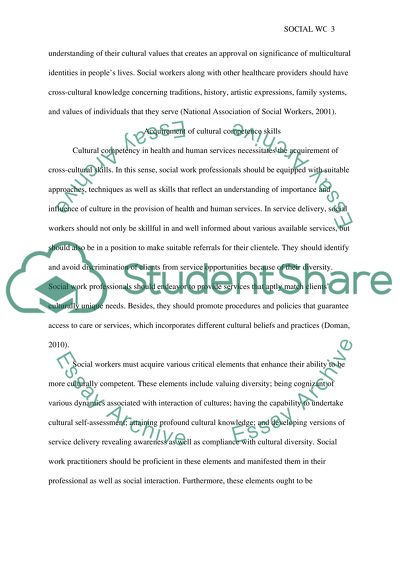Cite this document
(“Cultural Competence in Social Work Essay Example | Topics and Well Written Essays - 3250 words”, n.d.)
Retrieved de https://studentshare.org/social-science/1401798-social-work
Retrieved de https://studentshare.org/social-science/1401798-social-work
(Cultural Competence in Social Work Essay Example | Topics and Well Written Essays - 3250 Words)
https://studentshare.org/social-science/1401798-social-work.
https://studentshare.org/social-science/1401798-social-work.
“Cultural Competence in Social Work Essay Example | Topics and Well Written Essays - 3250 Words”, n.d. https://studentshare.org/social-science/1401798-social-work.


